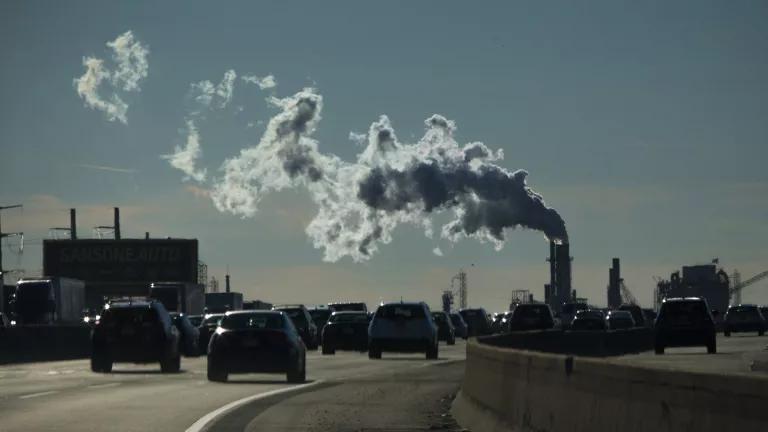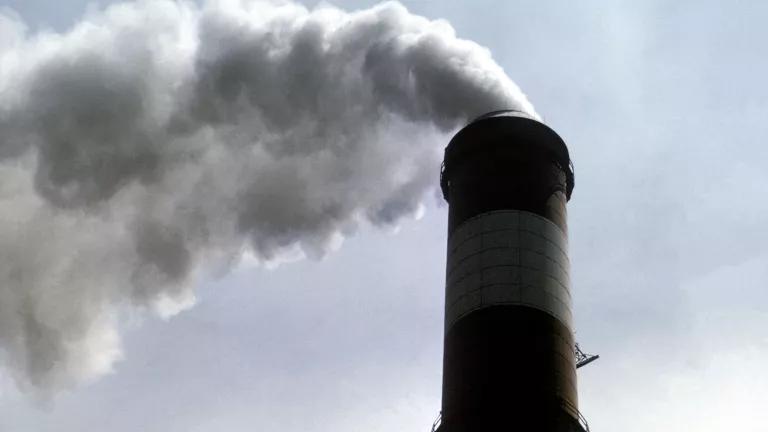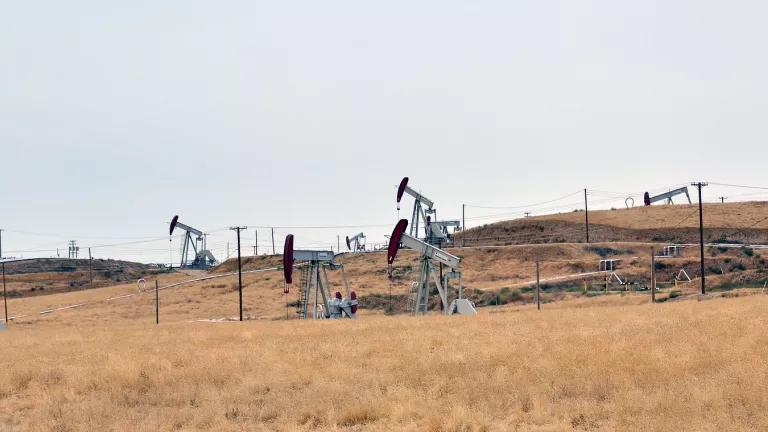Trump Threatens States with Two Executive Orders Favoring Fossil Fuels—Again

The move is yet another attempt to expedite fossil fuel development, this time by limiting states’ ability to protect their water as well as making it easier to approve cross-border dirty energy pipelines.
In a transparent attempt to restrict states’ powers to protect their own streams, rivers, wetlands, reservoirs, and springs, President Trump signed an executive order intended to limit states’ authority to enforce its water quality standards against interstate fossil fuel infrastructure like fracked gas pipelines. He also signed a separate executive order designed to ease the approval process for cross-border pipelines.
According to Trump’s remarks, at least one of these executive orders was issued in direct response to New York governor Andrew Cuomo's enforcement of the Clean Water Act to block several natural gas pipelines in New York State, particularly Constitution Pipeline.
Before a natural gas pipeline is built in any state, it must first obtain, among other things, a water quality certification issued by the state in accordance to Section 401 of the Clean Water Act. This ensures that the pipeline will meet state water quality standards. If a state denies this certification, the pipeline cannot be built there.
This state role is essential to protect water quality—in some cases, state laws prohibit pollution that might be allowed under federal law. And states have unique knowledge of local conditions and stakeholders that may not be fully considered by federal agencies.
Under Section 401 of the Clean Water Act, states have one year from the date they receive a project’s application to decide whether the project will meet state water quality standards. Some of the projects subject to review are massive, like fracked gas pipelines, and require very detailed analysis of the effects on nearby waterbodies.
One of the two executive orders instructs the U.S. Environmental Protection Agency to, among other things, revisit the timeline in which states have to review fracked gas pipelines and to limit the scope of state water quality reviews. This contravenes the very purpose of section 401 of the Clean Water Act, which is to empower states to enforce their own water quality standards against interstate projects. In other words, Trump is trying to limit the information that states and the public can gather on impacts to clean water, as well as the time they have for doing so.
To date, New York has denied water quality certification to three pipelines: Constitution, Northern Access, and Valley Lateral. All but Constitution’s denial has been voided by the Federal Energy Regulatory Commission, which determined that New York took too long (over one year) to make these determinations.
One natural gas pipeline—the Northeast Supply Enhancement, or Williams—is still under review by New York and New Jersey. Williams would cut through some of the most important bodies of water of these two states—Raritan Bay and the lower New York Bay—and involve the construction of more than 17 miles of fracked gas pipeline within New York waters and more than 6 miles of pipeline in New Jersey waters. (NRDC submitted comments urging New York to deny 401 water quality certification.) It is essential that both states have the time they need to carefully evaluate the impacts of this pipeline.
The intent of Trump’s executive orders is clear. In a time when we should be rapidly transitioning off fossil fuels in favor of clean energy, Trump's orders are taking us back in time and leaving communities vulnerable to the excesses of an industry that has repeatedly violated state water quality standards across the country.




